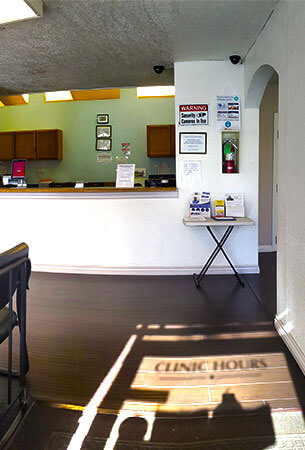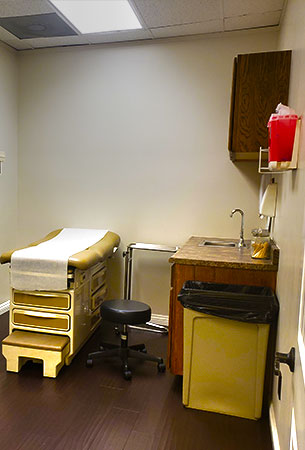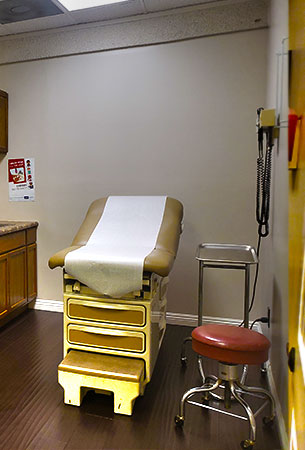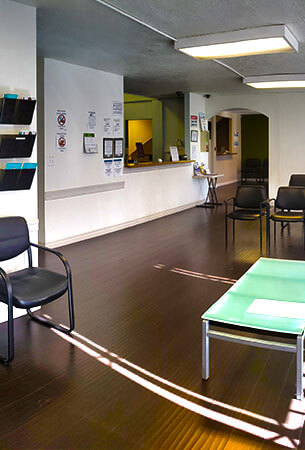Mon-Fri
9AM - 7PM
Saturdays
9AM - 5PM
Sundays
10AM - 3PM
714 N Avalon Blvd, Wilmington, CA 90744, USA
Mon-Fri
9AM - 7PM
Saturdays
9AM - 5PM
Sundays
10AM - 3PM
714 N Avalon Blvd, Wilmington, CA 90744, USA
Your health is your wealth, and that is why you need to take good care of it at all costs. Primary care services varies from person to person, and each person has their own unique needs. It would help if you had a reliable primary care health services provider who has the potential to cater to all your health issues from head to toe.
A good healthcare provider who can address your current and future health care needs takes time to evaluate your health history, health concerns, and wellness goals. The primary care services provider near me should not only dwell on treating your pains and aches but also offer comprehensive care. Examples of primary care services include:
Primary care services is the first point of contact when it comes to health care. It's partnering with a professional primary care services provider in Wilmington, San Pedro, across Long Beach, Torrance, Carson, or Lomita who will always prioritize your health and help you live long and healthy.

Medicine, Engineering, and the National Academies of Sciences describe primary care as "the provision of integrated, accessible health care services by clinicians who are accountable for addressing a large majority of personal health care needs, developing a sustained partnership with patients, and practicing in the context of family and community."
Several kinds of healthcare services are in cooperation in primary care. While one part of healthcare deals with prevention and wellness, the other part focuses on acute healthcare. In prevention and wellness, your primary care doctor will help you by:
The critical part of primary care services is that they deal with injuries that may happen without expecting, but they don't affect your health in the long run. It may be a simple cough from a cold or a twisted ankle while you were exercising. The first medical professional you will go to is the primary care doctor. Patients with chronic illnesses such as diabetes or asthma can also get medical care from a primary care provider.
Your primary care provider will closely monitor your condition. Since a primary care doctor is the one who works closely with the patient, they can decide whether it is the right time to consult a specialist. Moreover, a primary care physician knows of the factors in your community that may harm your health. This means they are constantly updated whenever a disease breaks out and will know what further action to take if the condition worsens.
Regarding healthcare, everyone wants to be counted, and no one wants to be left out. The main source of health care has to be your primary care. Some of the benefits that you are going to get from your primary care facility include:
The majority of the people who want to get high-quality healthcare services prefer primary care rather than going to the emergency room. This is due to the low cost of health care services that primary care providers give. They also take a short time to attend and serve patients. People who tend to visit primary care clinics often spend less on their health care services, plus they are always healthy. This is according to the Council on Graduate Medical Education.


In the primary care sector, there are varying types of healthcare professionals. Below are primary care examples that you may have in your location:
Family physicians
These medical professionals are highly skilled and trained to diagnose, prevent, and treat health conditions in persons of all ages – both children and adults. A family doctor can handle a variety of primary care services, including disease diagnosis, minor surgeries, and immunization.
Internists
Doctors specializing in internal medicine have been trained to diagnose, prevent and treat adults of 18 years and above, and they don't have the expertise and skills to treat children.
Pediatricians
The doctor's profession specializes in treating babies, children, and teenagers who are 21 and below.
Geriatricians
The kind of doctor who offers health and medical services to treat older adults is called a geriatrician. These doctors can specialize in age-specific conditions and integrate their health services if they suffer from various diseases.
Obstetrician/gynecologist (OB-GYN)
The doctor who offers medical and health services to women seeking reproductive health services is an OB-GYN doctor. They deal with reproductive health matters that concern pregnancy, childbirth, menopause, and postmodern issues.
Nurse practitioners
Nurse practitioners are professional healthcare providers who are trained to diagnose, prevent, and offer treatments to people suffering from various types of health conditions. Among the responsibilities that nurses have is creating treatment plans, prescribing medications, and assisting patients in managing their care. They work in their scope of practice independently from doctors.
Physician assistants
These healthcare professionals are also trained to prevent, diagnose, and treat all kinds of patients with different health conditions. They have become quite popular nowadays because they offer almost the same primary care services as provided by doctors. Physician assistants can't work independently, and they require doctors to prescribe medication or sign off patients.
There are many diagnostic services, procedures, and treatments performed by a primary care provider. Below are some of these health care services:
All these practitioners can be trained to engage with and treat a particular group of patients. Their knowledge of these groups of patients and their specific health needs are deep and extensive. The most common kind of primary healthcare provider is the general practitioner or the primary care physician. They have the most comprehensive range of patients and are also quite knowledgeable of their illnesses.
Non-primary care physicians only relate to particular medical specialties and don't provide comprehensive and ongoing healthcare services. There are primary care providers who are not only physicians but can offer first contact services. These types of services include lifestyle changes and dietetics for cardiac and diabetes patients. They work as part of the primary health care team.
Having a health insurance plan is one way to access a primary care provider and services in the United States. You will get a direct care services list in your area since many health insurance companies have it. You may save money by selecting a physician on the list provided by your health insurance plan network. However, this will depend on the type of insurance provider that you have. Your colleagues, friends, and neighbors can also offer you suggestions on the best insurance providers.
Moreover, insights on the best primary care providers may be provided by reading online reviews. You will get information such as the communication style, policies, and personality of the provider. Schedule an appointment with your prospective provider once you find one that meets your healthcare requirements. By meeting your provider face to face, you will be able to gauge whether you can form a good patient-doctor relationship. If you feel like that particular provider is not a good choice for you, you have a right to look for another provider who seems friendly enough to work with. You can decide to select another provider who is in the same practice. You can also explore the options available for you in other healthcare centers and community clinics.







In case of medical urgency, you can visit Wilmington urgent care clinic. It offers faster access to healthcare services when your primary health provider is closed. Our top-notch medical expertise and vow to personalized attention will address your health concern faster. You can find a diverse range of treatments for non-emergent health conditions at affordable prices than ERs and hospitals. The clinic works during weekends and most public holidays.
Some primary care specialties include health care services such as general pediatrics, family medicine, general obstetrics and gynecology (ob/GYN), combined internal medicine/pediatrics (med/peds), and general internal medicine.
Emergency Medicine does not match the services offered by primary care, and therefore it is not considered primary care. A patient can use scheduled checkups to plan for primary care in advance. On the other hand, emergency care is for patients who are experiencing sudden health care needs that are life-threatening. It can be an injury or a sickness that requires immediate medical attention without scheduling an appointment.
Many medical professionals can provide primary care, including a physician, a Medical Doctor (M.D.), or a Doctor of Osteopathic Medicine (D.O.). Other professionals include clinical nurse specialists and a physician assistant. A physician assistant is allowed under law to provide, coordinate, or help a patient get access to a wealth of health care services.
The difference between primary care and an urgent care clinic is the working hours. While urgent care clinics offer services around the clock, primary care clinics, on the other hand, attend to patients Monday through Friday only during regular business hours.
The doctor specializing in diagnosing and treating children is known as a pediatrician, and they also offer primary care, making them primary care doctors. This medical profession caters to the physical, mental, and social health of children. To graduate and practice as a pediatrician, one must attend four years of medical school and another three years as a medical resident in pediatrics.
Urgent care reimbursements are about $115. That means, on average urgent care will cost you 30% more than primary care.
Although Neurology doesn't fall in the primary care category, according to the American Academy of Neurology (AAN), efforts are being made to gain that sobriquet. It wants to capitalize on the recent policy change, which is supposed to benefit primary care providers.
A health care professional who attends to patients who have the same medical problems is called a primary care provider (PCP). Such a medical practitioner is also a doctor, and a CPC may also be a nurse practitioner or a physician assistant. A CPC often offers long-term health care solutions to patients.

No more waiting for long hours in emergency rooms when you have Wilmington Urgent Care. Fix your appointment today and get attended right away.